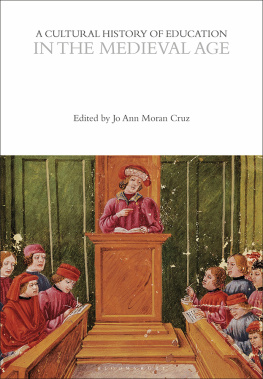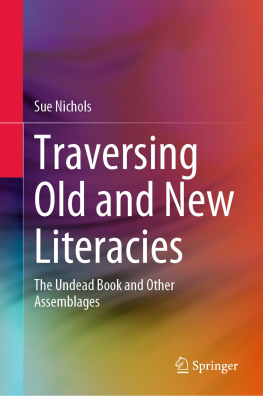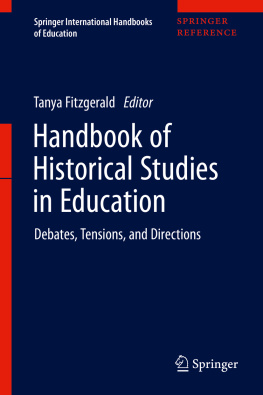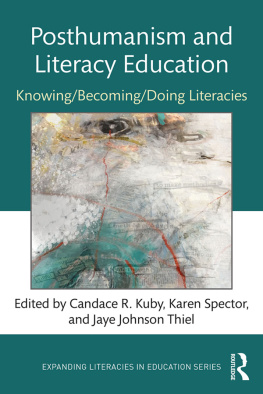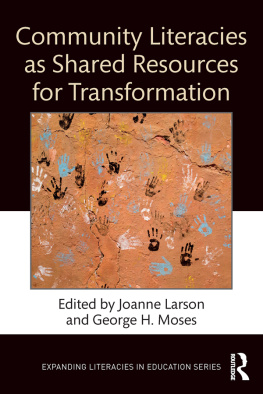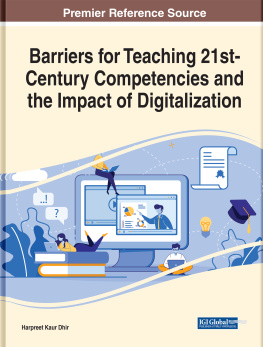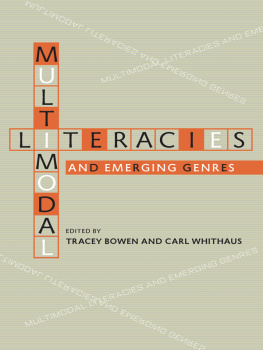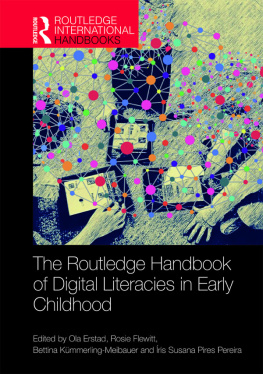Contents
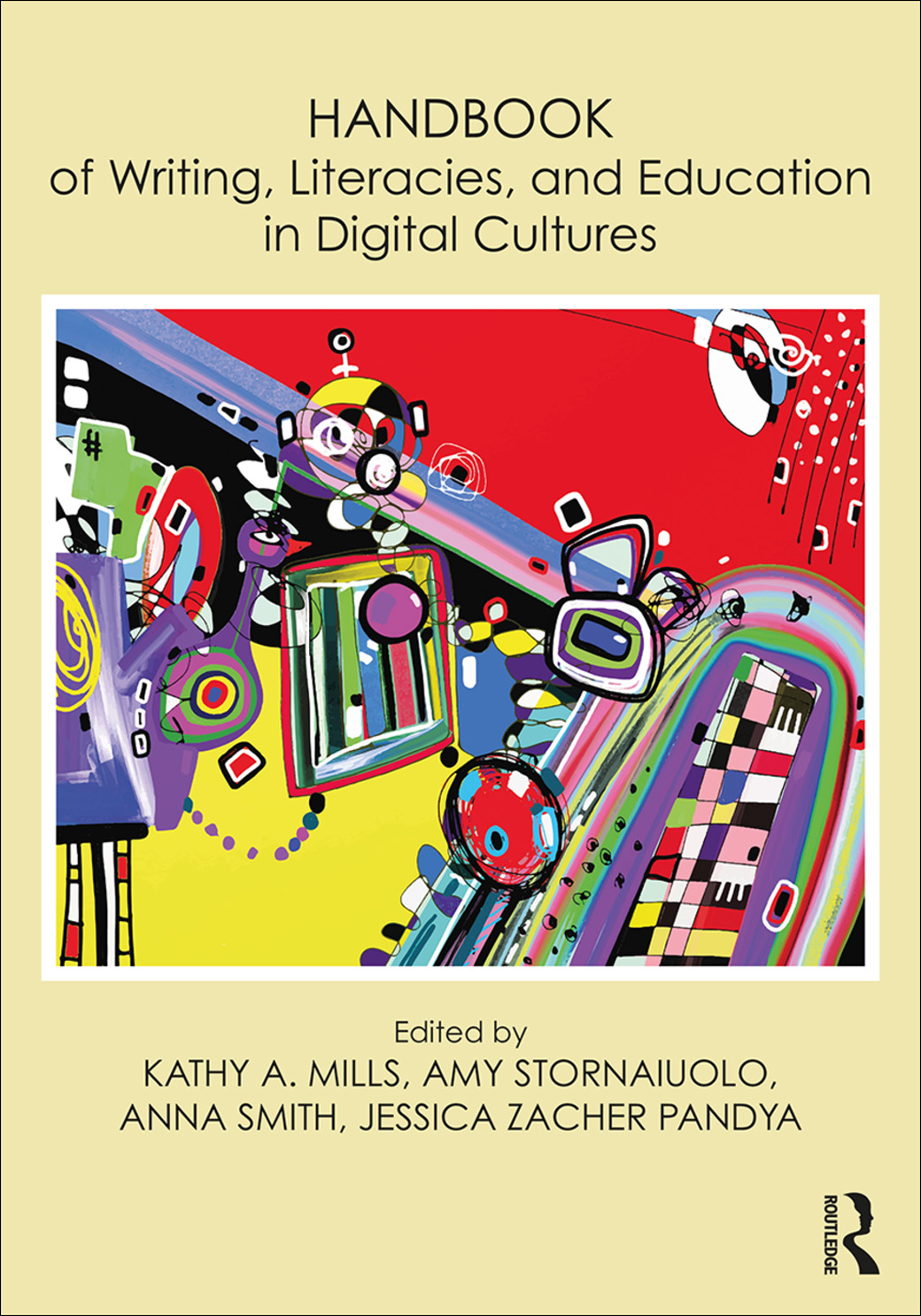
Handbook of Writing, Literacies, and Education in Digital Cultures
At the forefront of current digital literacy studies in education, this handbook uniquely systematizes emerging interdisciplinary themes, new knowledge, and insightful theoretical contributions to the field. Written by well-known scholars from around the world, it closely attends to the digitalization of writing and literacies that is transforming daily life and education. The chapter topicsidentified through academic conference networks, rigorous analysis, and database searches of trending themesare organized thematically in five sections:
Digital Futures
Digital Diversity
Digital Lives
Digital Spaces
Digital Ethics
This is an essential guide to digital writing and literacies research, with transformational ideas for educational and professional practice. It will enable new and established researchers to position their studies within highly relevant directions in the field and to generate new themes of inquiry.
Kathy A. Mills is a Professor of Literacies and Digital Cultures at Learning Sciences Institute Australia at Australian Catholic University, Australia.
Amy Stornaiuolo is an Assistant Professor in the Reading, Writing, and Literacy program of the Graduate School of Education at the University of Pennsylvania, USA.
Anna Smith is an Assistant Professor of Secondary Education at Illinois State University, USA.
Jessica Zacher Pandya is the Chair of Liberal Studies and Professor of Teacher Education and Liberal Studies at California State University, Long Beach, USA.
First published 2018
by Routledge
711 Third Avenue, New York, NY 10017
and by Routledge
2 Park Square, Milton Park, Abingdon, Oxon, OX14 4RN
Routledge is an imprint of the Taylor & Francis Group, an informa business
2018 Taylor & Francis
The right of Kathy A. Mills, Amy Stornaiuolo, Anna Smith, and Jessica Zacher Pandya to be identified as the authors of the editorial material, and of the authors for their individual chapters, has been asserted in accordance with sections 77 and 78 of the Copyright, Designs and Patents Act 1988.
All rights reserved. No part of this book may be reprinted or reproduced or utilised in any form or by any electronic, mechanical, or other means, now known or hereafter invented, including photocopying and recording, or in any information storage or retrieval system, without permission in writing from the publishers.
Trademark notice: Product or corporate names may be trademarks or registered trademarks, and are used only for identification and explanation without intent to infringe.
Library of Congress Cataloging-in-Publication Data
A catalog record for this book has been requested
ISBN: 978-1-138-20630-4 (hbk)
ISBN: 978-1-138-20633-5 (pbk)
ISBN: 978-1-315-46525-8 (ebk)
Typeset in Minion
by codeMantra
Kathy A. Mills
The decision to produce an academic research volume with a distinctive focus on writing and literacies emerged from our service as elected officers of the Writing and Literacies Special Interest Group (SIG) of the American Educational Research Association. It all began one brisk, spring day as we sipped hot coffee in a busy caf in Chicago, Illinois, during the 2015 AERA Annual Meeting. Jessica Zacher Pandya was incoming Chair, Kathy Mills the Program Chair, Amy Stornaiuolo the Treasurer, and Anna Smith the Communications Chair. We recognized our shared vision to extend the scope of our international research leadership and bring together our expertise as digital writing and literacies scholars. Encouraged by the outgoing Chair, Leslie Cook, we made a collective commitment that day to produce a volume that synergized research of writing in the digital turn by leading scholars within and beyond the Writing and Literacies SIG, a network that includes nearly 600 members across multiple countries and continents, including the US, Canada, UK, Australia, South Africa, Europe, South America, New Zealand, and Cyprus.
Why writing and why now? The Handbook of Writing, Literacies, and Education in Digital Cultures has grown from a vibrant legacy of writing and literacies scholars, such as Steve Witte, Steve Cahir, Shirley Brice Heath, Brian Street, Kris Gutierrez, Glynda Hull, Allan Luke, Colin Lankshear, Michele Knobel, Sarah Warshauer Freedman, Anne Haas Dyson, Linda Flower, Bill Cope, Mary Kalantzis, and many other influential scholars. These scholars had earlier recognized the great potential of attending seriously to writing and literacies as a substantial and significant research field. Reading research had a visible presence at the American Education Research Association (AERA) in the 1970s and early 1980s, with clearly designated forums for research dissemination. However, there were no similar networks or programs of writing and literacies research.
There was a palpable excitement in the establishment of the Writing and Literacy Special Interest Group at AERA, which later became Writing and Literacies. As Sarah Freedman has stated in our SIGs series of podcasts, No longer was writing to follow literacies, but indeed to lead it (Wargo & Smith, 2015). The interest and anticipation had a ripple effect as writing began to emerge as a distinct research focus both within and beyond AERA members. The use of the term literacies became an important inclusive way to reflect the diversity of literacy as social practices across communities, aligned with key international research of the way in which children, young people, and adults participate in multiple spheres of communication. This move was aligned to the emergence of bodies such as the National Centre for the Study of Writing and Literacy (NCSWL) and the National Writing Project in the US.
Why digital cultures? The digitalization of writing and literacies is becoming increasingly apparent and transformational in everyday life. Technologies of inscription are changing in complex ways, and writing cultures take on innumerable forms across all stages of life, across media, and across social contexts. The time is right to recognize research of literacy across diverse digital contexts of use as a mature, yet rapidly expanding field of research in its own right. Research of the multiple digital contexts of writing is no longer positioned at the margins of literacy studies, reserved for young, tech-savvy literacy academics. The field is expanding to include many who appreciate that literacy is no longer dominated by practices that involve eraser fragments and pencil shavings on the desk. In daily life, less of what we now write and read is produced with pen and paper, or distributed as printed text.
In recent years, the Writing and Literacies SIG at AERA has continued to be a significant player in research as theorists from around the world meet to establish and develop new frontiers in new literacy studies, multiliteracies, media literacy, digital literacies, multimodal literacy, and other original approaches to writing and literacies research studies. This is a substantial volume that brings together leading scholars to provide in-depth and authoritative knowledge of this vital research field. This benchmark reference work organizes and systematizes the field of writing and literacies in digital cultures, providing an essential guide for researchers, educators, graduate and post graduate students, librarians, policy makers, and projectsone that cant be ignored. This volume, Handbook of Writing, Literacies, and Education in Digital Cultures


